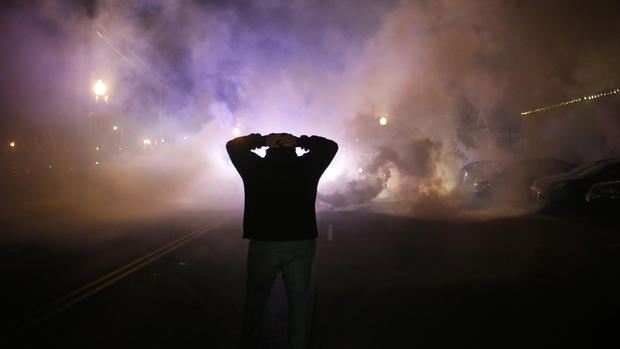Ferguson outcome reinforces perceptions of unequal justice
The grand jury's decision not to indict Ferguson police officer Darren Wilson reinforced a perception in the black community that justice is not always applied equally.
On Tuesday, black Americans walked a path many have traveled before. There were protests in towns and cities across the country. Jan Gaetjens was in Chicago.
"Its not overt racism," she said. "It's a structure and a system that disproportionately affects young black men and women."
Over the last decade, the system has been on trial too. In 2006 Sean Bell was shot and killed by New York City police in a barrage of 50 bullets. He was unarmed.
In 2012 teenager Trayvon Martin was shot and killed in Florida. The man who killed him, George Zimmerman, was acquitted.
Darren Wilson said to have "clear conscience" after Ferguson decision
And in August, Michael Brown was shot by a police officer in Ferguson.
Three highly publicized cases which served to reinforce what Georgetown Law School Professor Paul Butler said communities of color believe.
"Often, African American victims, don't receive equal protection of law. A lot of black people feel that the police are not there to serve and protect them. They have very different experiences with cops than white people do."
According to a CBS News poll conducted shortly after the shooting in Ferguson, 71 percent of African-Americans believe police are more likely to use deadly force against a black person than a white person. While a majority of whites do not believe race plays a role.
A racial divide seen on twitter where comments ranged from:
"I love our justice system ... Not perfect but tonight it is based on facts " to "we protest because we are being slaughtered."
In the days after the Brown shooting, just 35 percent of blacks thought the investigation would handled fairly. Last night's reaction was not one of surprise. It was one of disappointment and outrage.
